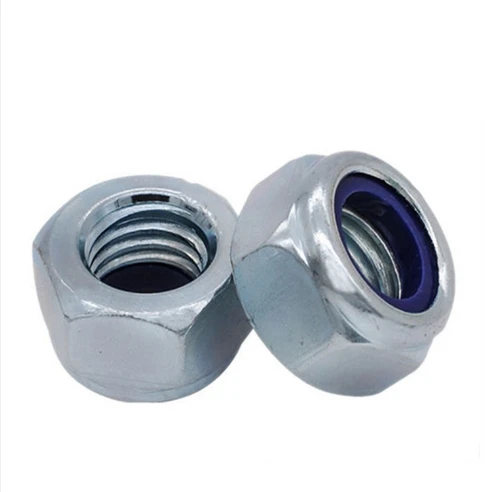B7 Stud Bolt Manufacturing Processes and Industry Standards Insights
नोव्हेंबर . 30, 2024 13:27 Back to list
B7 Stud Bolt Manufacturing Processes and Industry Standards Insights
Understanding B7 Stud Bolts Applications and Manufacturing
Stud bolts, particularly those classified as B7, play a crucial role in various industrial applications where high strength and reliability are required. These fasteners are commonly utilized in the oil and gas sector, power generation, and heavy machinery, owing to their robust characteristics and resistance to high-temperature environments. This article explores the significance of B7 stud bolts, their manufacturing processes, and the factories that specialize in their production.
What are B7 Stud Bolts?
B7 stud bolts are high-strength fasteners made from a specific grade of steel alloy, known for its impressive tensile strength and resilience. The designation B7 refers to the American Society for Testing and Materials (ASTM) specification A193, which defines the chemical composition and mechanical properties required for these bolts. Typically, B7 stud bolts are manufactured from alloy steel that undergoes stringent heat treatment to enhance their properties.
These fasteners are characterized by their ability to withstand extreme conditions, including high temperatures and pressures, which makes them the preferred choice for applications in critical service environments. Often, B7 stud bolts are used in conjunction with appropriate nuts, typically made from the same or compatible material, to ensure a secure and stable fastening.
Applications of B7 Stud Bolts
The primary applications of B7 stud bolts include
1. Oil and Gas Industry B7 stud bolts are widely used in the assembly of flanges and equipment in oil drilling and refining processes. Their ability to handle elevated pressures and temperatures makes them essential in these high-stake environments.
2. Power Generation In power plants, B7 stud bolts are utilized in pressure vessels, heat exchangers, and turbine assemblies. Their reliability ensures that critical infrastructure functions effectively without the risk of failure.
4. Chemical Processing The chemical industry requires fasteners that can withstand corrosive materials and high thermal stress. B7 stud bolts fit this requirement, ensuring the integrity of processes involving aggressive chemicals.
Manufacturing B7 Stud Bolts
stud bolt b7 factories

The manufacturing process of B7 stud bolts is critical to their performance. Typically, the production involves several key steps
1. Material Selection The first step is selecting the right grade of alloy steel, often containing elements like chromium and molybdenum, which impart desirable properties.
2. Forging and Shaping The steel is then heated and forged into the desired shape, often in lengths ranging from a few inches to several feet.
3. Heat Treatment This step involves processes such as quenching and tempering, which enhance the mechanical properties of the bolts by altering their microstructure.
4. Threading Once shaped, the bolts are threaded to conform to standards, ensuring compatibility with nuts and other fasteners.
5. Quality Testing Rigorous quality control measures are implemented to test the strength, dimensional accuracy, and surface integrity of the finished products. Inspections may include tensile testing, hardness testing, and non-destructive evaluations.
Leading Factories in B7 Stud Bolt Production
Several factories around the globe specialize in the production of high-quality B7 stud bolts. These manufacturers often adhere to international standards and certifications, ensuring their products meet the stringent requirements of various industries. Leading factories prioritize advanced technologies and equipment, enabling them to produce large quantities of precision-engineered fasteners.
Furthermore, many manufacturers focus on continuous improvement and innovation in their processes to enhance the performance characteristics of their products. By investing in research and development, these factories can adapt to the evolving demands of the industry, ultimately contributing to safer and more reliable infrastructures.
Conclusion
B7 stud bolts are indispensable components in various industries, especially where high strength and performance are essential. Their unique properties, coupled with a meticulous manufacturing process undertaken by specialized factories, underline their importance in ensuring the safety and reliability of critical applications. As industries continue to evolve, the demand for such high-quality fasteners will undoubtedly persist.
Latest news
-
High-Quality Bolts for Lawn Mower Handle Supplier & Manufacturer
NewsAug.21,2025
-
Reliable Axle Nuts Supplier | High-Quality Automotive Parts
NewsAug.19,2025
-
Premium Wire Bolts Suppliers | Durable & Reliable Fasteners
NewsAug.18,2025
-
Leading Metric Wood Screw Companies & Manufacturers
NewsAug.17,2025
-
Top Wire Bolts Suppliers - Quality & Durable Fasteners
NewsAug.15,2025
-
Trusted Wire Bolts Company | Quality Fasteners Supplier
NewsAug.14,2025
